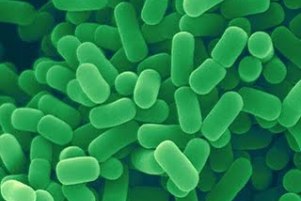RESEARCH: Probiotic effects of L. plantarum for piglets

Chinese researchers have reported that a Lactobacillus plantarum strain was found to have probiotic effects, improving pig growth and pork quality.
Researchers Cheng Suo, Yeshi Yin, Xiaona Wang, Xiuyu Lou, Dafeng Song, Xin Wang and Qing Gu studied the effects of Lactobacillus plantarum ZJ316. They published their findings recently in BMC Veterinary Research.
They concluded that the probiotic mechanism might not involve L. plantarum colonisation and alteration of the gut bacterial community. Rather, it might be related to the inhibition of the growth of opportunistic pathogens and promotion of increased villus height.
Plant-associated bacterial species
Lactobacillus plantarum is a plant-associated bacterial species but it has also been found in human, mouse and porcine gastrointestinal tracts. It can ferment a broad spectrum of plant carbohydrates; it is tolerant of bile salts and low pH, and it has antagonistic potential against intestinal pathogens.
However, experiments reporting the use of L. plantarum as a probiotic are limited. In this study, the effects of L. plantarum ZJ316 isolated from infant fecal samples on pig growth and pork quality were investigated.
In total, 150 newly weaned pigs were selected randomly and divided into five groups. Group 1 was fed a diet supplemented with the antibiotic mequindox; Groups 2, 3 and 4 were fed a diet supplemented with L. plantarum and no antibiotic; and Group 5 was fed a mixture of mequindox and L. plantarum.
After a 60 days initial treatment, samples were collected for evaluation. The results showed that, the L. plantarum ZJ316 has probiotic effects on pig growth and that these effects are dose dependent.
Effects
The effects of a dose of 1 x 109 CFU/d were more pronounced than those of a dose of 5 x 109 CFU/d or 1 x 1010 CFU/d. In group 2 (1 x 109 CFU/d), the diarrhea and mortality rates were lower than in antibiotic-treated pigs (group 1), and the daily weight gain and food conversion ratios were better. Improved pork quality was associated with Lactobacillus treatment. pH (45 min), hardness, stickiness, chewiness, gumminess and restoring force were all significantly improved in Lactobacillus-treated pigs (group 2).
Although the researchers found that L. plantarum exerted probiotic effects on pig growth and pork quality, the mechanisms underlying its action require further study. Polymerase chain reaction-denaturing gradient gel electrophoresis results showed that the gut bacterial communities in Lactobacillus– and antibiotic-treated pigs were very similar and the quantity of the L. plantarum strain was below the detection limits of DGGE-band sequencing.
The concentration of short-chain fatty acids in Lactobacillus– and antibiotic-treated faecal samples were not significantly different. However, the villus height of ilea, jejuna and duodena were found to be significantly improved by Lactobacillus treatment.
Related website:
• BMC Veterinary Research











